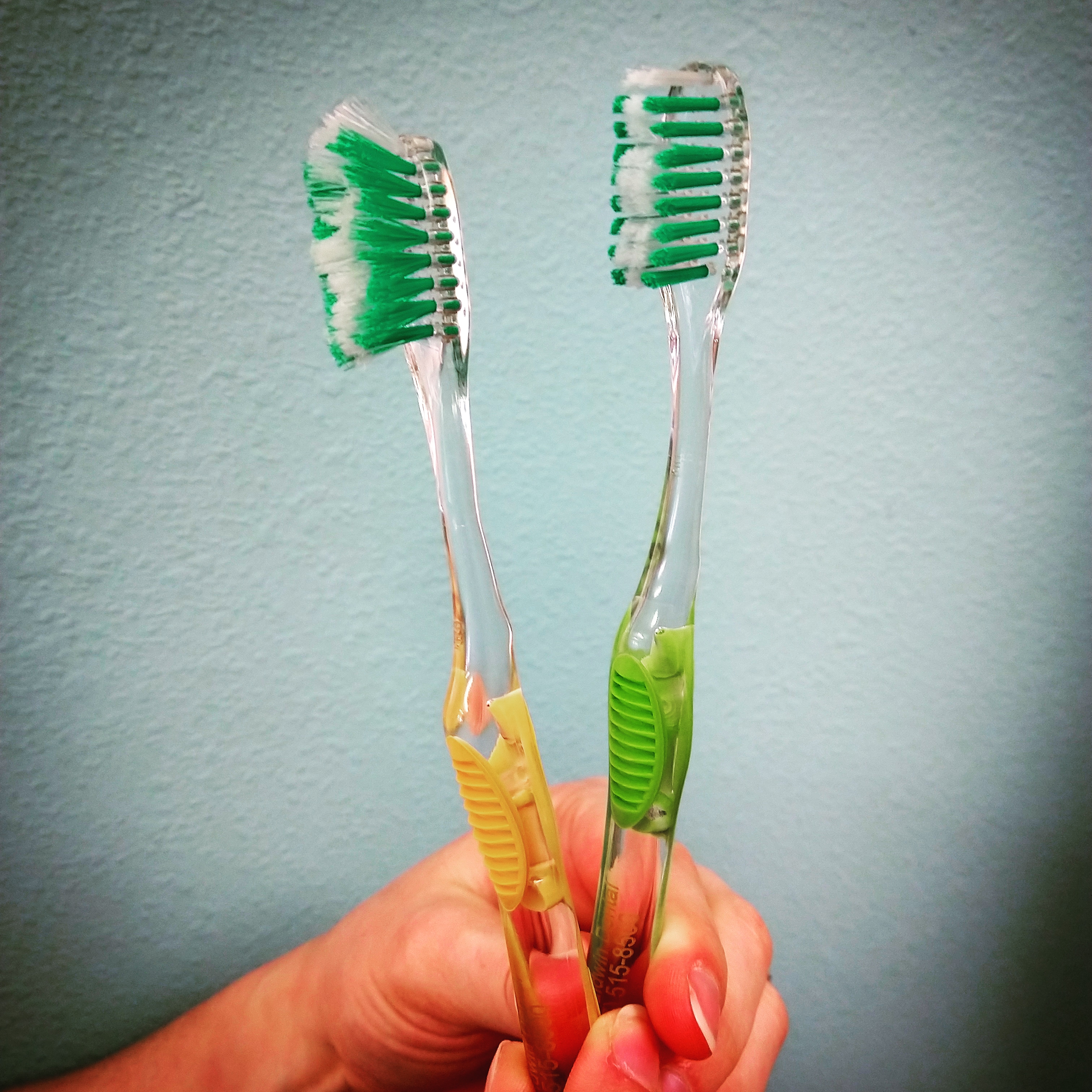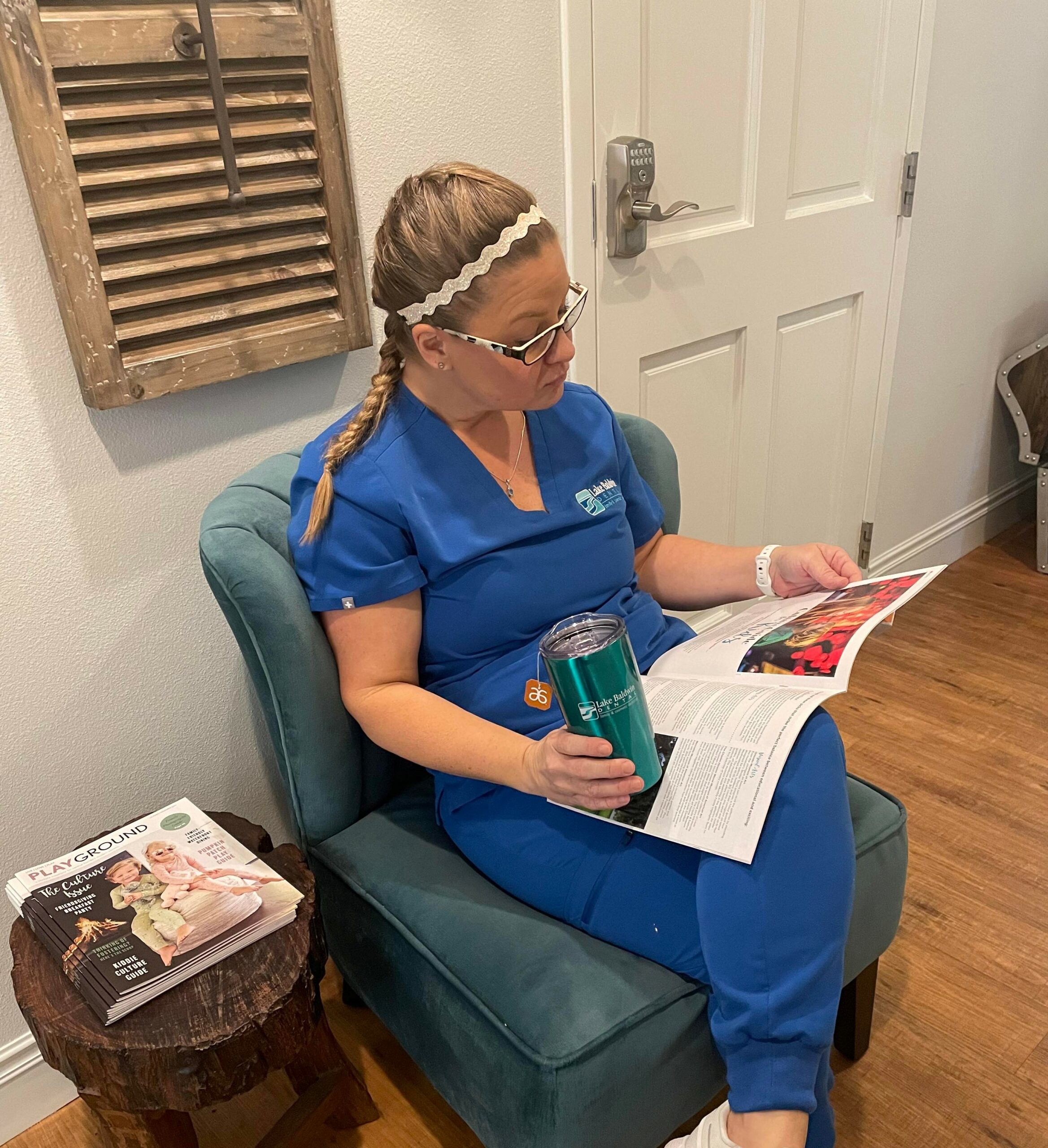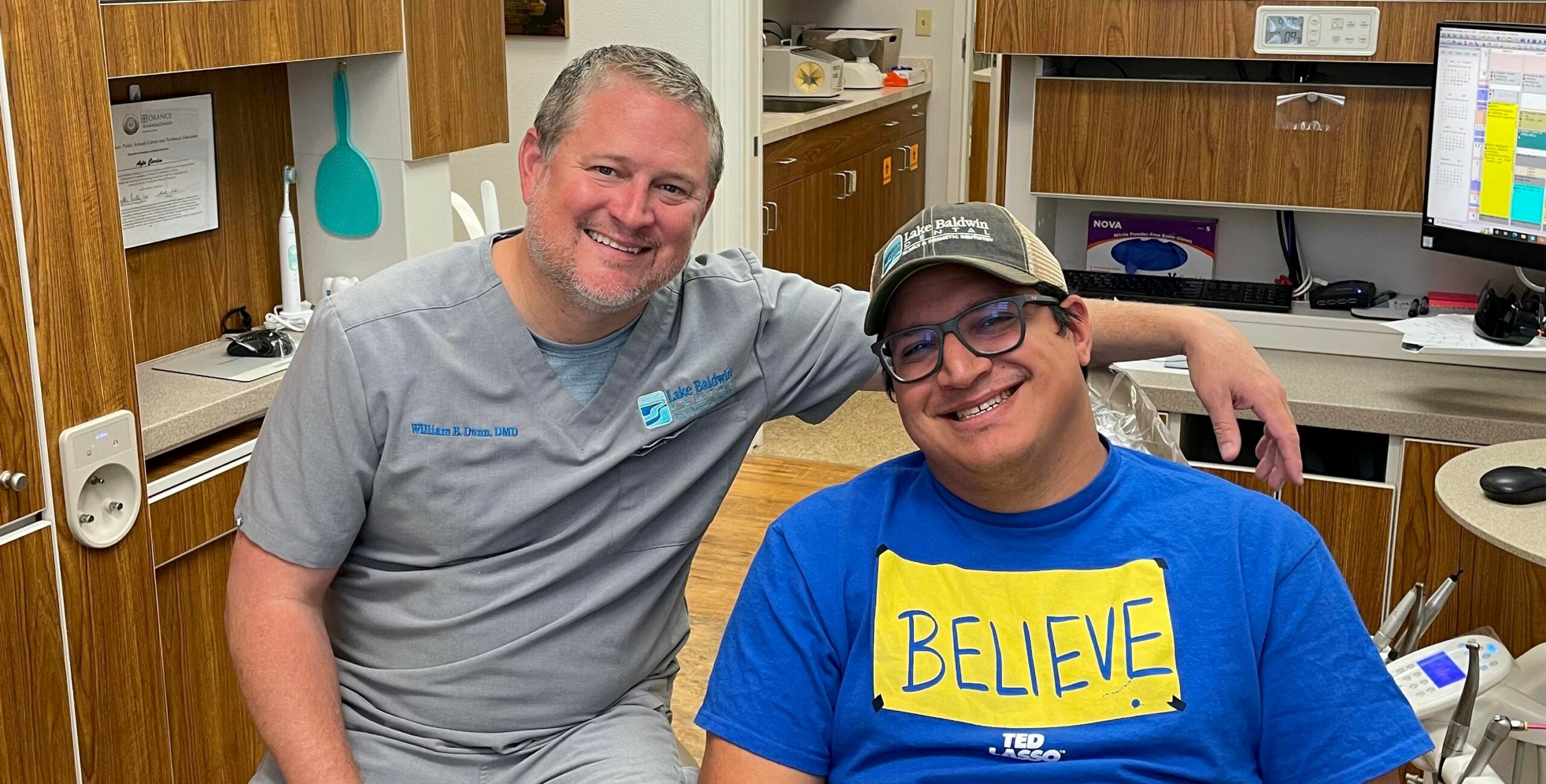We all want to do our best to keep our teeth and gums as healthy as possible.
But what if your oral health routine is doing more harm than good?
Here are the top 5 mistakes we see patients making that hurt their teeth and gums. And how to fix them!
1. Brushing Too Hard

Doing a great job brushing will help you avoid cavities and keep your gums healthy. Thorough brushing for two minutes twice every day keeps plaque and tartar buildup under control and removes harmful bacteria.
It may seem like scrubbing as hard as possible is the best way to remove plaque.
But brushing too hard can actually damage your gums and even wear away enamel from your teeth!
The key to removing plaque is to be thorough and consistent. To get the most out of your brushing, try this:
- Use a soft toothbrush. Soft toothbrushes have thinner bristles that fit into nooks and crannies and conform to the contours of the teeth better.
- Only brush two teeth at a time. Long back-and-forth strokes turn into something like scrubbing grout. To avoid this, only brush about two teeth at a time, using a “jiggle” motion or short circular strokes.
- Use gentle pressure. Most electric toothbrushes will have an indicator if you’re applying too much pressure. If your toothbrush bristles end up looking curly and frayed when it’s time for a replacement, you’re brushing too hard. If you have trouble keeping your pressure under control, try using your non-dominant hand or just holding the brush with your fingertips instead of your entire fist.
- Switch to a non-abrasive toothpaste. Part of the problem with rough brushing is that your toothpaste may be too abrasive. Sensodyne and prescription toothpastes tend to be on the low end of the scale and are safer for your teeth and gums.
2. Brushing Too Fast
Other than brushing too hard, many of us brush too fast.
Most of us know we’re supposed to brush for two minutes, but do you know how long you actually brush?
If you use an electric toothbrush like a Sonicare, it probably has an automatic timer built in. All you have to do is keep going until the brush switches itself off.
But without a timer, most of us only brush for about 30 to 45 seconds.
Why isn’t that enough time?
Plaque is sticky. It’s somewhat similar to mildew in its structure (and serves the same purpose in protecting the bacteria living in it). And just like mildew, it takes a few seconds of disruption to break it up so it can be swept away when you rinse.
Our 2-minute brushing recommendation gives you a few seconds per tooth, giving you enough time to brush the full tooth surface thoroughly for as much time as it takes to remove plaque effectively.
If your toothbrush doesn’t have a built-in timer, use your cellphone or an egg timer to be sure you’re giving your brushing routine the time it deserves!
3. Sipping on Drinks All Day

We’ve talked about how important it is to stay hydrated. Sipping on water throughout the day is a great way to prevent dehydration and boost your oral health.
But if you have a habit of taking little sips of anything other than water throughout the day, you could be seriously damaging your teeth.
It’s well-documented that sports drinks, sodas, and juice can damage our teeth. But why is that?
It has a lot to do with how acidic and sugary these drinks are. But it has more to do with how long it takes for the pH of your mouth to return to baseline after each sip.
Each time your teeth are exposed to sugars and acid, it takes about 20 minutes to return to a neutral pH. So, if you just chug a Gatorade, you’re not doing too much damage.
On the other hand, if you’re taking a sip every few minutes or half hour over the course of several hours, you’re soaking your teeth in acid that entire time. That’s where the most severe damage happens.
We’re not saying you should swear off sugary drinks completely. Just drink them, enjoy, and then rinse with water or chew some sugar-free gum afterward.
What about coffee or tea? If they don’t have any sugar or milk added, they won’t do as much damage as sports drinks as far as cavities are concerned, but your teeth will build up a lot of stain with frequent sipping. Same principle applies here: drink your drink, then rinse or chew gum afterward to remove staining compounds.
4. Damaging Your Teeth While You Sleep
Some of the most severe damage to our teeth and gums happens overnight. You may not even be aware you’re doing it!
There are two main sources of oral health problems that happen during sleep.
1. Grinding and Clenching
Many people grind or clench their teeth while they sleep and aren’t aware. This can be because of an uneven bite without a good resting position for your jaw.
It can also be related to sleep apnea and snoring. If your airway has trouble staying open while you sleep, your body may respond by moving the jaw in an attempt to make more space for airflow. Leading directly to grinding habits.
In both cases, seeing your doctor about potential sleep apnea is a great place to start.
Our team at LBD can also make you a custom-fitted nightguard to protect your teeth and relieve strain on your jaw joints while you sleep.
2. Breathing with Your Mouth Open
As much as clenching can be a problem breathing through your mouth can also cause trouble!
If you’re a mouth breather, while asleep or awake, it can dry out the tissues of your mouth. This can lead to inflamed gums, sore skin on your tongue, and chapped lips.
It also allows bacteria to grow out of control and leads to heavy plaque and tartar build-up.
Mouth taping has become a bit of a new trend, and there is some research out there to support the practice. However, we’d recommend talking to your doctor first. You may have other problems that are causing you to breathe through your mouth, such as a deviated septum or sinus issues.
5. Skipping Dental Check-Ups

Final mistake people make that can hurt their oral health? Skipping check-up visits and cleanings!
If you already have healthy teeth and gums, twice-yearly visits are all it takes to keep your oral health in great shape. But skipping just one visit means you haven’t seen your dentist in a year, which is plenty of time to allow a minor issue to become a big problem.
For patients who build up a lot of plaque, or who have gum disease or are at high risk for cavities, you may need to see your dentist every three or four months. It’s essential to stay on track if you need a more frequent routine. Skipping these visits may make it difficult to keep your treatment on track.
Been a while since you’ve gotten a cleaning and check-up? Now is a great time to call us and schedule your next visit! Keep smiling, Orlando!

